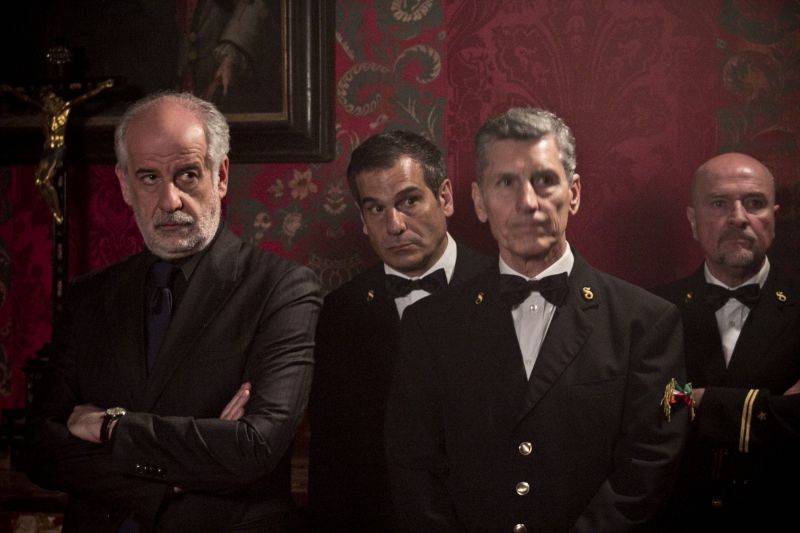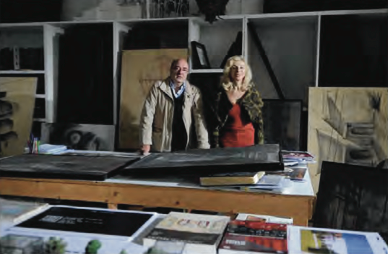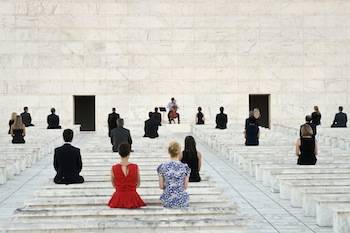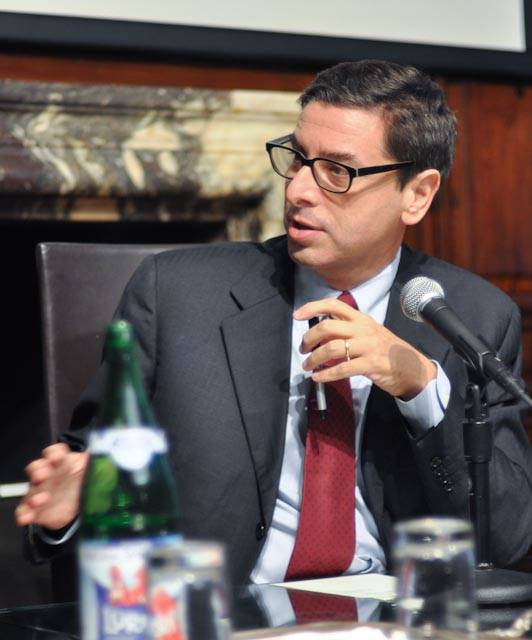Italian Cinema. If It’s June, It Must Be Open Roads
The month of June brings not only better weather to New York but, for cinephiles, something just as eagerly awaited: Open Roads, the festival of new Italian cinema. Open Roads returns to Lincoln Center from June 6 to June 12, with 12 films by established and up and coming directors.
Since its founding in 2001, the festival has become the premier American showcase for new
movies from Italy. For Italian film fans, it is an event not to be missed.
The 2013 lineup has films by such distinguished directors as Marco Bellocchio (“Dormant Beauty”), Gianni Amelio (“The First Man”), Marco Tullio Giordana (“Piazza Fontana, the Italian Conspiracy”), and Paolo Virzi (“Every Blessed Day”). Filmmakers making their Open Roads debuts include Daniele Cipri (“It Was the Son”), Susanna Nicchiarelli (“The Discovery at Dawn”), Guido Torlonia (“Handmade Cinema”) and Elisa Fuksas (“Nina”).
Open Roads co-curator Antonio Monda says that Nicchiarelli and Fuksas represent something new at Open Roads: “The stronger presence of women directors.”
“We have four out of 12,” Monda says, “which is still a minority, I know, it’s not equal.” But it is the greatest number of women directors featured at Open Roads. In addition to Nicchiarelli’s and Fuksas’ films, the festival will screen “The Rescue,” by Giovanna Taviani (daughter and niece of Vittorio and Paolo Taviani) and “I Travel Alone,” by Maria Sole Tognazzi. Fuksas, Tognazzi, and Nicchiarelli will be present at the screenings of their films.
This year’s festival also includes two documentaries, Giovanna Taviani’s film and Guido Torlonia’s “Handmade Cinema,” about the crafts people of the Italian film industry, who Monda calls “the unsung heroes of our cinema.” And as in past editions of Open Roads, there are films that explore social and political issues and that focus on particular regions of Italy.
Monda is delighted that Open Roads has become such a success. In 2001, he, Richard Peña (the recently departed director of the Lincoln Center Film Society), and producer Giorgio Gosetti conceived the idea for a New York Italian cinema event while they were at the Cannes film festival. “Giorgio, who managed a company, Italia Cinema, which became Film Italia and was then absorbed in Cinecittà, backed us economically. Richard and I focused on the artistic aspect. The goal was to organize at least three editions and now that we have gotten to the thirteenth we are obviously incredibly satisfied. We established two criteria for the festival: the variety of genres and the quality of the movies, but at the same time we maintained a general freedom in choosing the films. So far our intuitions have been successful.”
Of the founders, only Monda remains; he now organizes the festival with film critic Dennis Lim, Issa Cucinotta, and Marcela Goglio.
The selection process for Open Roads begins after the Venice Film Festival, held annually in late August and early September. Monda and his colleagues screen about 20 films shown at Venice and of those they select 12 for Open Roads.
This year’s Open Roads features two films that Monda calls “contemporary classics,” Gianni Amelio’s “The First Man,” adapted from an unfinished novel by Albert Camus, and Marco Bellocchio’s “Dormant Beauty,” inspired by the case of Eluana Englaro, a young Italian woman who for many years was in a vegetative state after an auto accident until her father won the right to have her removed from life support.
Amelio’s “The First Man” is “not the first time an Italian director has filmed a Camus novel,” notes Monda. “There also was ‘The Stranger,’ by Luchino Visconti,” in 1967.
“’The First Man’ is a wonderful film, but it had a lot of production problems and was postponed several times. But it got great reviews and we are happy to have it at Open Roads.”
Bellocchio’s “Dormant Beauty,” presented at last year’s Venice Film Festival, “deals with an incredibly contemporary problem, euthanasia. It’s about a young woman who is a ‘dormant beauty,’ meaning she is in a coma. The parents have to decide whether she should die or not.”
Monda says the film, which stars Toni Servillo and Isabelle Huppert, “was received with huge respect in Italy because Bellocchio is one of our great masters, but also with some controversy.”
Bellocchio, 73, who made his first film, “Fists in the Pocket,” in 1965, has had what Monda calls a “creative re-birth” during the past decade, with such outstanding work as “The Hour of Religion,” an irreverent satire condemned by the Vatican, “Good Morning, Night,” about the Red Brigades’ kidnapping and murder of Aldo Moro, and “Vincere,” the director’s vividly imagined and partly speculative epic centered on Ida Dalser, a woman who Mussolini seduced and abandoned on his path to power.
Speaking of controversy, Open Roads will present “It Was the Son,” the directorial debut of Sicilian cinematographer Daniele Cipri, best known for the outrageously satiric films he shot in Sicily with the director Franco Maresco. Cipri’s film, a dark comedy about the Mafia, is, says Monda, “what you’d expect – provocative, strong, original, a little bit wild.”
Noting the presence of a number of films with a regional focus, Monda observes, “We are in a moment when identity is one of the great discussions going on in Italy. Are we really a nation or just an assemblage of different places, different campanili?” Also, regional film commissions “are stronger and able to finance films, so filmmakers are encouraged to go where they can get money for productions, like Puglia and Piemonte, which have two of strongest film commissions.”
Financing for new Italian films has become increasingly difficult to obtain. “The situation is not very good,” says Monda. “We have talented filmmakers but in general the industry is not strong at all, and this is a real problem. With the economic climate in Italy, producers are less encouraged to make films, to risk their money. For too many years Italian producers were accustomed to being just line producers, using other people’s money. Now they have to risk, because the government cannot help them a lot and everything is more and more complicated now.”
Monda hopes that “La Grande Bellezza,” the new film by Paolo Sorrentino shown at the recently concluded Cannes Film Festival will give a boost to the Italian film industry. (Sorrentino’s “Il Divo” won the Jury Prize at Cannes in 2008.) The film’s success would “help Italian cinema very much,” says Monda. “La Grande Bellezza” did not win any major awards at Cannes, but critics and audiences praised the film, and its star Toni Servillo, virtually ensuring a run on the festival circuit and a theatrical release.
The problems of the Italian film industry notwithstanding, Monda is gratified by the track record of Open Roads. “I am happy because in 13 years we have shown 12 to 15 films every year, so 180 films more or less, and at least 20 released theatrically [in the U.S.]. We pack our theaters every evening and do a very good business in the afternoon, too.”
For more information about Open Roads, and to order tickets, visit the Film Society of Lincoln Center.










































i-Italy
Facebook
Google+
This work may not be reproduced, in whole or in part, without prior written permission.
Questo lavoro non può essere riprodotto, in tutto o in parte, senza permesso scritto.